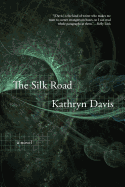
Once one of the most important trade routes in the world, the Silk Road is now an emblem of how cultures interact and intersect. A locus of peoples, places and things, the routes between Asia and Europe served as a guide between worlds. It's no surprise, then, the concept appears as a central conceit in Kathryn Davis's transcendental novel where history and identity bend and stretch.
Told from the perspective of a group of siblings, The Silk Road follows them through environmental and personal disaster, tracking the collective as it narrates its own conflicts and dissolutions. There isn't much of a plot to the book, more a series of memories, each one related to the whole in ways that always feel slightly obscured. This doesn't stop the story from being compelling, though. The siblings, named only by their profession (one is the Botanist, another the Cook), each have moments to stand out from the whole, where Davis renders them with heartbreaking perfection. While her characters' names and biographies are obscured, she digs into particular moments with such profound specificity that they are brilliantly alive to the reader.
Perhaps intentionally, The Silk Road is reminiscent of another metaphysical narrative about the connection between East and West: Hermann Hesse's Journey to the East. Indeed, lovers of writers like Hesse will instantly fall under Davis's spell, plunging into a world where identity shifts and forms new connections, where archetypes reveal profundities, and mysteries, while never solved, still provide meaning. --Noah Cruickshank, director of communications, Forefront, Chicago, Ill.

